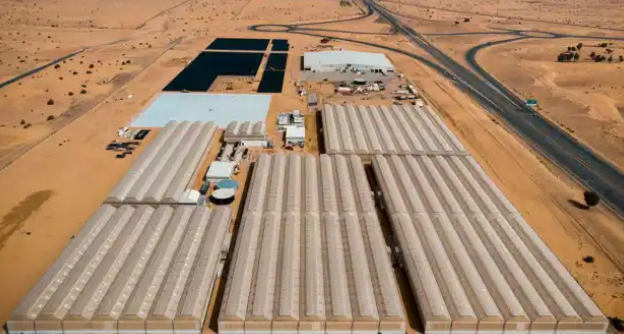#SpanishInvention #AgriculturalRevolution #Hydroponics #WaterEfficiency #FertilizerReduction #RecirculatingIrrigation #AutomatedGreenhouses #SustainableFarming #CropProductivity #ClimateChangeAdaptation
The Spanish company NGS is embracing recirculating hydroponics and automation to increase crop production. Facing a dangerous drought and desertification due to climate change and overexploitation of aquifers, Spanish farmers are turning to innovative technologies. One such ingenious Spanish invention enables efficient irrigation, reducing water usage by up to 70%, while another system, gravity-driven micro-irrigation, enhances crop yields. NGS, a company based in Almería, has been at the forefront of developing hydroponic solutions without substrate, optimizing water resources and reducing fertilizers. With their advanced technology and expertise, NGS offers a productive model, allowing for low-cost fruit and vegetable production with minimal water and fertilizer consumption.
NGS, which designs and installs greenhouses, irrigation systems, and automation equipment, has become a national and international reference. Their hydroponic system eliminates the need for substrates by using plastic layers at different heights to support the root systems of plants and facilitate optimal growth. This innovative multilayered design also improves plant resistance to diseases and forms the basis of a closed-loop recirculating irrigation circuit. After each irrigation, any unused water returns to the water reservoir via gravity, resulting in approximately 50% less water and fertilizer usage compared to conventional systems. Not a single drop of water is wasted, as often happens in soil-based crops due to runoff and evaporation.
The primary advantage of NGS over other installations, apart from water and fertilizer savings, lies in the accelerated plant development. The hydroponic system maximizes root growth, as there are no barriers hindering root expansion across the different layers. It also allows for short and frequent irrigation cycles, ensuring an abundant supply of nutrients. Additionally, the plants are protected from both water excess and water scarcity stresses. NGS’s system promotes oxygenation throughout the layers, enhancing the plant’s oxygen intake and nutrient absorption. As a result, the plants grow faster and yield higher production compared to other available cultivation systems on the market.
NGS’s hydroponic cultivation system offers a competitive advantage by avoiding soil usage. Being based on hydroponics and recirculating irrigation, the nutrient solution used does not end up in rivers or seas. This aspect is particularly crucial in regions facing contamination issues like the Mar Menor in the Murcia Region. By implementing NGS’s system, farmers can cultivate crops without polluting the environment, both in greenhouses and open fields.
NGS’s other pillar is their adaptable greenhouses, designed to suit specific environmental conditions and crop types. To delve into their virtues, EL ESPAÑOL-Omicrono spoke with Antonio Quirós, a partner of Mochana Green, one of the recent projects where NGS played a crucial role.










